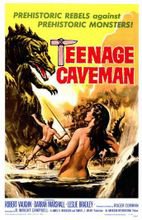The disappearance of Neanderthals is frequently attributed to competition from modern humans, whose greater intelligence has been widely supposed to make them more efficient as hunters. However, a new study forthcoming in the February issue of Current Anthropology argues
 that the hunting practices of Neanderthals and early modern humans were largely indistinguishable, a conclusion leading to a different explanation, also based on archaeological data, to explain the disappearance of the Neanderthals. This study has important implications for debates surrounding behavioral evolution and the practices that eventually allowed modern humans like us to displace other closely-related species.
that the hunting practices of Neanderthals and early modern humans were largely indistinguishable, a conclusion leading to a different explanation, also based on archaeological data, to explain the disappearance of the Neanderthals. This study has important implications for debates surrounding behavioral evolution and the practices that eventually allowed modern humans like us to displace other closely-related species. The researchers use new archaeological data from a Middle- and Upper-Paleolithic rock shelter in the Georgian Republic dated to 60,000–20,000 years ago to contest some prior models of the perceived behavioral and cognitive differences between Neanderthals and modern humans. Instead, the researchers suggest that developments in the social realm of modern human life, allowing routine use of distant resources and more extensive division of labor, may be better indicators of why Neanderthals disappeared than hunting practices.